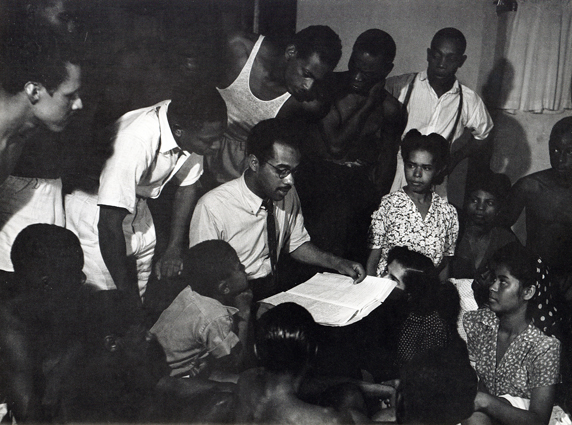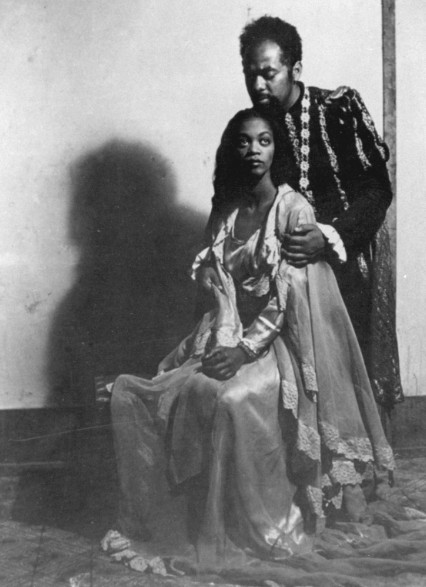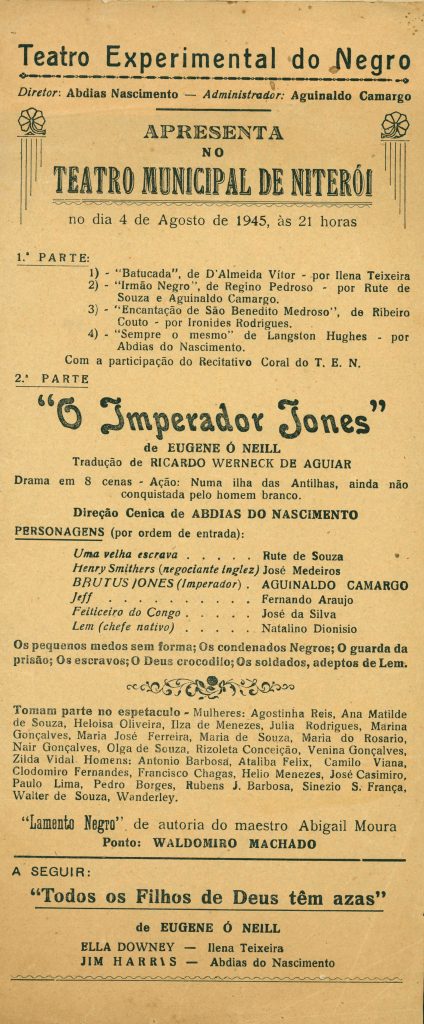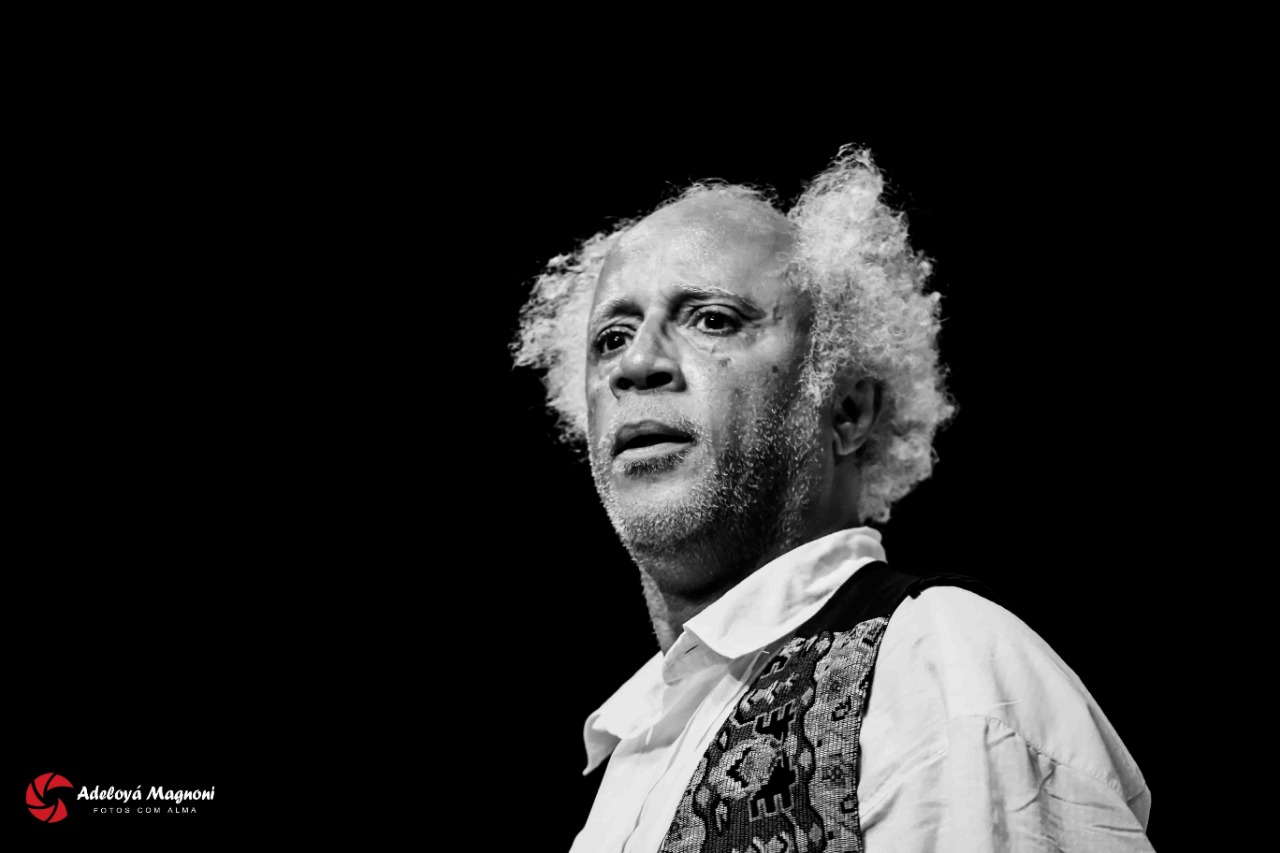Teatro Experimental do Negro: from 1944 to the present day
Through technical and political training, the Teatro Experimental do Negro made it possible for black people from other professions to also exercise their lives on stage.


Photo Credit: Disclosure /Adeloyá Magnoni
By: Eduarda Nunes / Lupa do Bem – Favela em Pauta
Even those who have never heard about the Teatro Experimental do Negro (TEN) reap the benefits of it. Created in the 1940s by the economist, multi-artist and social articulator, Abdias do Nascimento, the Teatro Experimental do Negro was a movement that complained and acted on the lack of black people in dramaturgy.
Through technical and political training, TEN made it possible for black people from ordinary professions to also exercise the life of the stage. It is from this project that brilliant names like Ruth de Souza emerge, who joined the group as a domestic worker and died two years ago as one of the greatest Brazilian actresses that ever existed.
Ruth de Souza was the first black actress to perform at the Teatro Municipal in Rio de Janeiro, considered a symbol of the exaltation of the Eurocentric arts by those who make black theater.

From literacy classes to influences on the proposition of the Afonso Arinos Law (1951), the first to deal with the prohibition of racial discrimination in the country, TEN was also responsible for the arrival of Brazilian theater to a new moment, as well as for the dramaturgy black´s development.


The importance of “commons”
Starting in the world of dramaturgy doing theatrical lighting in Rio de Janeiro in the late 80s, Hilton Cobra, known as Cobrinha, is strange not to see black people acting on stage.
He began to manage a black theater company without knowing that there were already many of them, and began to study and pursue Abdias do Nascimento, Grande Otello and their productions. “Abdias is characterized not only by its theatrical aesthetics but by its entire political movement. And he used, willingly and very well, the theatrical aesthetic to convey his anti-racist political discourse”, says Cobrinha. In 2001, the Cia dos Comuns was born.
Understanding Afro-Brazilian culture and religiosity as a rich source of reference for the elaboration and exercise of a black dramaturgy were essential for the Cia dos Comuns to act not only for its position in the world but that of Brazilian black theater in its totality.
The wheel of the world, Candaces — the reconstruction of fire, Bakulo — the well-remembered, Silêncio and Traga-me a Cabeça by Lima Barreto are the texts immortalized by the actors and actresses who until today keep the company active in the scene.
One of the main objectives of Cia dos Comuns is to contribute to the opening of the market to black artists and to give continuity to a dramaturgy and theater aesthetics with the Teatro Experimental do Negro as the main reference.
Thus, from 2001 to 2008, he not only staged productions, but also moved the public debate about the sustainability of the area. The National Forum of Black Performance and the Ólonadé art show are some of the legacies.


Although the reality is of little incentive for the arts, Cobrinha saw optimism in the scene. “Look,” he says, “there is no sponsorship for anyone, there is no cultural subsidy for practically anyone today, but we, who rarely had it, always had this scarcity. We’re making a comeback. It is a pity that the pandemic interrupted this process.”
Black theater in Rio de Janeiro, São Paulo and Salvador were reaching a different moment, defends the playwright. Even viewers with less purchasing power understood the importance of paying the minimum amount, so that artists and workers were properly remunerated.
“From 40 onwards, everything that is done is Abdias do Nascimento”
Cobrinha’s advice to anyone who intends to continue the Black Theater is to take care of the technique and not weaken on the political issue. It is to these postures that the playwright credits the survival and growing relevance of actors and other professionals in the black arts in the theatrical scene.
With almost 45 years of experience, Cobrinha never left Abdias do Nascimento. According to him, everything that has been done since the Teatro Experimental do Negro is a continuation of what Abdias wanted.
“Theatre is the stratum of a people’s culture. And all we want is the stratum of culture and the lives of black people on stage. That’s what the multi-artist believed and that’s what has been done so far”, says Cobrinha.
In 2021, 10 years have passed since Abdias joined the ancestry to continue influencing and being a reference for those who continue to play TEN, in addition to other initiatives for the emancipation of the Brazilian black population.




